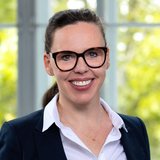Seminar Description
This three-hour seminar supports physicians and researchers actively engaged in mentoring to further develop their mentoring and role-modeling skills. Participants will explore the distinctions between mentors, teachers, and role models, and their influence on students’ professional identity formation. Through interactive exercises, they will practice effective communication, feedback, and conflict resolution strategies, while reflecting on their own values to foster a supportive and inclusive mentoring environment.
Objectives
By the end of the seminar, participants will be able to:
- Differentiate between the roles of a mentor, teacher, and role model, and explain how each contributes to medical students’ professional identity formation.
- Apply effective communication strategies to foster trust, psychological safety, and constructive dialogue in mentoring relationships.
- Demonstrate skills in providing formative feedback that supports both professional growth and personal development of mentees.
- Reflect on their own professional values, behaviors, and attitudes, and identify how these influence their role-modeling in clinical and educational settings.
- Manage challenging situations within mentoring groups by applying conflict resolution strategies and fostering a respectful, inclusive learning climate.
Teaching Methods
- Interactive mini-lecture: short, focused inputs with key messages.
- Case-based discussion: analyzing and discussing real or realistic mentoring scenarios.
- Peer-to-peer exchange: small group discussions to share experiences and best practices.
- Guided reflection: structured self-reflection on values, attitudes, and role modeling.
- Think–Pair–Share: individual reflection, paired exchange, and plenary discussion.
- Facilitated group discussion: moderated exploration of challenging mentoring situations.
Target group
All faculty members of the Medical University of Vienna who supervise and support students as part of their teaching activities and who wish to further develop their skills.
The seminar is particularly intended for mentors in the Junior Mentoring, Senior Mentoring, and PhD Mentoring Programs who are currently leading a mentoring group.
Are participants expected to have prior knowledge?
This seminar builds on the “Basic” and “Advanced” mentor training seminars at the Medical University of Vienna.
Equipment
- Flipchart
- chairs arranged in a circle
Facilitators

Robin Bartmann
Trainer, Coach
Dr.in Angelika Hofhansl, MME
Leiterin Medizindidaktik, Teaching Center, MedUni WienGroup size
- up to 20 participants
Hours
3 hours
References
- Ahmady, S., Changiz, T., & Brommels, M. (2022). Outstanding qualities of a successful role model in medical education: Students and faculty members’ perspectives. Clinical Simulation in Nursing, 61, 14–22. https://doi.org/10.1016/j.ecns.2021.08.006
- Benbassat, J. (2014). Role modeling in medical education: The importance of a reflective, competent, and positive professional. Academic Medicine, 89(4), 550–554. https://doi.org/10.1097/ACM.0000000000000189
- Hill, E., Ma, M., & Siu, E. (2022). The nature and evolution of the mentoring relationship in academic medicine. Medical Education Online, 27(1), 2096504. https://doi.org/10.1080/10872981.2022.2096504
- Krishna, L. K. R., Azzopardi, P. S., & Toh, Y. P. (2019). Educational roles as a continuum: A qualitative study exploring the multifaceted roles of the medical educator. BMC Medical Education, 19, 384. https://doi.org/10.1186/s12909-019-1872-8
- Leong, C., Lee, Y. X., Tay, K., & Krishna, L. K. R. (2025). A systematic scoping review of mentor training in medical education. BMC Medical Education, 25, 73. https://doi.org/10.1186/s12909-025-07353-x
- Minor, S., Maldonado, M., & Candler, C. (2022). What do medical students want from a mentor? A needs assessment. PRiMER, 6, 9. https://doi.org/10.22454/PRiMER.2022.601727
- Passi, V., Johnson, S., Peile, E., Wright, S., Hafferty, F., & Johnson, N. (2013). Doctor role modelling in medical education: BEME Guide No. 27. Medical Teacher, 35(9), e1422–e1436. https://doi.org/10.3109/0142159X.2013.806982
- Wu, C., Li, Y., & Yang, X. (2024). Mentoring in medical education: Reflections on structure and function. BMC Medical Education, 24, 6248. https://doi.org/10.1186/s12909-024-06248-7
Teilnahmegebühr
Für folgende Personengruppen ist die Teilnahme kostenlos:
- Für MitarbeiterInnen der MedUni Wien
- Für externe Lehrende mit Lehrauftrag an der MedUni Wien
- Für Lehrende aus den Lehrkrankenhäusern der MedUni Wien
- Für akkreditierte Ausbildungspraxen Allgemeinmedizin der MedUni Wien

